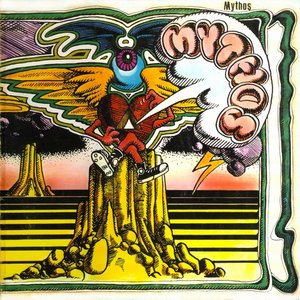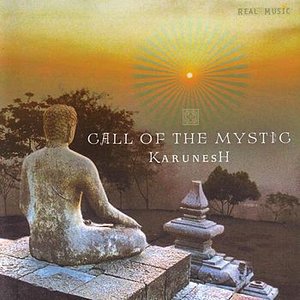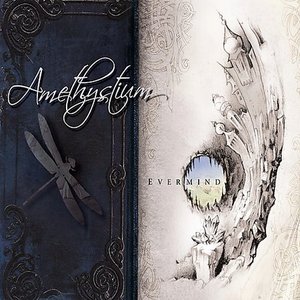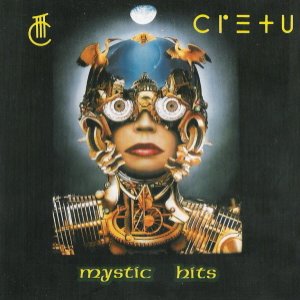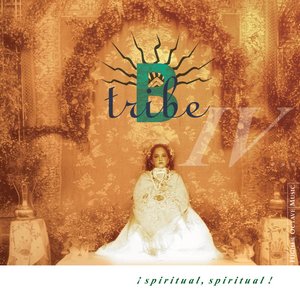Wiki
-
Release Date
3 December 1990
-
Length
5 tracks
MCMXC a.D. (1990 in Roman numerals followed by a seemingly incorrect abbreviation of "Anno Domini") is a concept album created by the musical project Enigma, spearheaded by Michael Cretu. It was Enigma's debut album and one of the most influential albums ever produced in the New Age genre. The project's popularity soon soared beyond Cretu's expectations after the album's launch, as it reached number 1 position in charts of 41 countries.
Four singles were excerpted from this album: "Sadeness (Part I)", "Principles of Lust", "Mea Culpa (Part II)" and "The Rivers of Belief". "Sadeness" and MCMXC a.D. itself hit No. 1 on the UK singles and albums charts respectively on its UK debut in January 1991. On the U.S. market "Sadeness (Part I)" reached fifth place on the Billboard Hot 100 and MCMXC a.D. made sixth place on the Billboard 200 and remained in the charts for a total of 282 weeks.
The main theme in MCMXC a.D. could be interpreted as the struggle that one faces in life, between religion and sexuality. The main song of the album ("Sadeness (Part I)") questions the personal beliefs of the Marquis de Sade, who had an affection towards torture as pleasure. Other themes that appear on the album were based on Christian beliefs, and the end of the world from the Book of Revelation.
MCMXC a.D. starts with the mellow sounds of a foghorn, later on to be known as the "Enigma horn" and the voice of Louisa Stanley, who at the time was an executive at Virgin Records speaking in "The Voice of Enigma". The Gregorian chant "Procedamus in pace!" then segues into the first three-part movement of the album even before it starts, "Principles of Lust". The first part, "Sadeness", received the most attention through its unique and previously unheard mix of Gregorian chants and dance beat. Triangles and synthesized shakuhachi flutes add to the French vocals and breathy sounds of Michael's wife, Sandra. The song fades into "Find Love", in which Sandra instructs the listeners to follow their lust. Reversed chants signal the start of "Sadeness (reprise)" and continues with a short piano piece, based on the same tunes as the shakuhachi flute earlier. The flute returns as chants of "Hosanna" gradually bring an end to the movement.
The next song, "Callas Went Away" is a tribute to the opera singer, Maria Callas. Chirps from electronic birds at the beginning, mixed with a slow beat and sounds of a piano leads to Sandra's whispers and ends with some samples of Callas singing the aria Ces lettres, ces lettres from the opera Werther by Massenet.
In "Mea Culpa", the plainsong chant "Kyrie Eleison" (from Mass XI, Orbis Factor, in the Liber usualis) appears predominantly, alongside Sandra's vocals and the same flute. It fades into the experimental track, "The Voice and the Snake", which is based on "Seven Bowls", a song from Aphrodite's Child where a group of people describe the end of the world in an eerie and haunting manner, as mentioned in the Book of Revelation.
A bowl falls to the ground and breaks, leading it to "Knocking on Forbidden Doors". The drums beats in the song made to resemble the sound of a door being knocked, before it progresses into a faster beat. A guitar enters and slips aside quietly for more Gregorian chants, this time a part of "Salve Regina", and fading into the following track.
The second three-part movement in the album, "Back to the Rivers of Belief", begins slowly with John Williams' five-toned notes from Steven Spielberg's movie, Close Encounters of the Third Kind, which leads to mellow Gregorian chants in the first part of the movement, "Way to Eternity". The same beat from "Sadeness" enters for the start of "Hallelujah" as the strong sounds of violins accompany the beat. The triangle and voices from the first track reappears and repeats itself. A noticeable Arabian style is apparent in this part and segues into the next part, "The Rivers of Belief", the only track where Michael Cretu sings in the album. After Cretu sings the chorus, the music stops completely and an unfamiliar male voice intones Revelation 8:1: "When the Lamb opened the seventh seal, silence covered the sky". This is also sampled from Aphrodite's Child album 666 (the voice here is of John Forst). The music resumes with the shakuhachi flute and Cretu's vocals. The album ends with the falling star effect and the "Enigma horn".
Controversy surrounded the music in the album for both its religious and sexual overtones, particularly the first three singles. The video clip for "Principles of Lust" was banned from MTV and most TV stations, who were also unwilling to play the music videos for "Sadeness (Part I)". The album itself was banned in several countries because of that same reason, while critics have slammed the songs in the album as blasphemous. Nevertheless, the popularity of the album shot up to number one in at least 24 different countries in where it was released, reaching gold and platinum status.
The success of MCMXC a.D. influenced the works of B-Tribe (Fiesta Fatal!), Delerium (Semantic Spaces) and even Sarah Brightman ("Eden"). The album was also a stepping stone for the creation of other groups who mainly include Gregorian chants in their music, such as Era and Gregorian, which was founded by Frank Peterson prior to his falling out with Michael Cretu.
In addition, Cretu received a total of 1.4 million pre-orders of their next album, The Cross of Changes which was launched even before MCMXC a.D. fell out of the charts after four years.
In 1994, Polydor Germany sued Cretu and Virgin Germany for infringing on its "right of personality" in the samples used in "Sadeness (Part I)" and "Mea Culpa". The lawsuit was settled out of court, after Cretu agreed to pay compensation to the original creator of the samples.
The artwork on the sleeve of MCMXC a.D. was designed by Johann Zambryski, who also continued to design the sleeves of the next four albums after MCMXC a.D. and its compilation and DVD covers. It depicted a thick, black frame surrounding a silhouette of a figure being enshrouded in a bright light, and a Christian cross in the lower centre of the album for emphasis towards the themes of the album.
Miscellanea
MCMXC a.D. was one of the first albums to be recorded on a hard disk after Cretu's upgrade to the A.R.T. Studio.
The rain at the beginning of "Mea Culpa" is a sample taken from the introduction of Black Sabbath's self titled album and song.
In the last (seventh) track of the album, the sentence about the Seventh Seal enters at the 7th minute and 7th second, although in some pressings, it appears at the 7th minute and 17th second.
Cretu only describes the male voice speaking in French in "Sadeness (Part I)" as a good friend of his.
The music for "Sadeness" where also used in the song "Gabi und Klaus" by Die Prinzen.
In the booklet of the album there are several quotes:
"The path of excess leads to the tower of wisdom." William Blake
"The pleasure of satisfying a savage instinct, undomesticated by the ego, is uncomparably much more intense than the one of satisfying a tamed instinct. The reason is becoming the enemy that prevents us from a lot of possibilities of pleasure." Sigmund Freud
"If you believe in the light, it's because of obscurity, if you believe in happiness it's because of unhappiness, if you believe in God then you have to believe in the Devil." Father X, Exorcist, Church of Notre Dame, Paris
Album descriptions on Last.fm are editable by everyone. Feel free to contribute!
All user-contributed text on this page is available under the Creative Commons Attribution-ShareAlike License; additional terms may apply.


